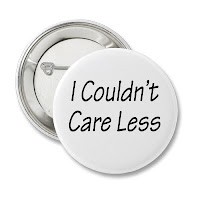gender fluid language
As spring continues to bless us with its often warm and then chilly weather, I’m aware of my own thoughts about the threads you offered in your last two posts SS.
I agree that there's a connection between how we reflect upon and write about questions of gender and identity and whether / how a child / person is out or not. I suggest that there is a need to always respect all of the folks who are part of a story, given that our lives are interconnected. And while some of the story may be ours, it is still partly, and possibly mostly, the story of the folks coming out. The conversations between and among folks about gender identity are perhaps more honourable when they are shared in private before any public presentation is made. I realize that there are times when this isn’t possible due to various reasons, however, I still believe that the experiences of all should be respected.
Your insight into how students write about their parents in a familial autobiography and how they came to understand through that assignment that we do live with others is one such example. Your comment that one of our familial bonds is protective silence, is another.
I so appreciate your honest reflection about the difficulty in finding the balance of supporting our children without being obsessive in our attempts to provide reasonable care. Living in a time when intensive mothering, as theorized by Sharon Hays in The Cultural Contradictions of Motherhood, is the current discourse of motherhood, mothering is particularly difficult because it’s coupled with parenting offspring through their twenties and into their thirties in these challenging economic times.
I am nevertheless optimistic about our ability to find ways to be fluid in our parenting practices. Recent news articles (see links below) speak of a positive moves in Sweden that are working to create gender-neutral language and toys, as well as the acceptance of co-ed sports teams and gender-neutral washrooms to support folks who are fluid in their gender presentation.
http://www.theglobeandmail.com/life/the-hot-button/youre-a-hen-im-a-hen-gender-neutral-pronoun-gains-ground-in-sweden/article2401402/
http://www.smh.com.au/world/his-hers-hens-swedes-genderneutral-push-gains-ground-20120413-1wxra.html
I also believe, that passing over that line between support and obsession is not limited to a singular movement, it also affords the possibility of moving over and through those boundaries, which are fluid themselves depending on circumstance again and again. The richness of our life experiences can offer these multiple opportunities to us as we continue to grow in our relationships. FFF.
I agree that there's a connection between how we reflect upon and write about questions of gender and identity and whether / how a child / person is out or not. I suggest that there is a need to always respect all of the folks who are part of a story, given that our lives are interconnected. And while some of the story may be ours, it is still partly, and possibly mostly, the story of the folks coming out. The conversations between and among folks about gender identity are perhaps more honourable when they are shared in private before any public presentation is made. I realize that there are times when this isn’t possible due to various reasons, however, I still believe that the experiences of all should be respected.
Your insight into how students write about their parents in a familial autobiography and how they came to understand through that assignment that we do live with others is one such example. Your comment that one of our familial bonds is protective silence, is another.
I so appreciate your honest reflection about the difficulty in finding the balance of supporting our children without being obsessive in our attempts to provide reasonable care. Living in a time when intensive mothering, as theorized by Sharon Hays in The Cultural Contradictions of Motherhood, is the current discourse of motherhood, mothering is particularly difficult because it’s coupled with parenting offspring through their twenties and into their thirties in these challenging economic times.
I am nevertheless optimistic about our ability to find ways to be fluid in our parenting practices. Recent news articles (see links below) speak of a positive moves in Sweden that are working to create gender-neutral language and toys, as well as the acceptance of co-ed sports teams and gender-neutral washrooms to support folks who are fluid in their gender presentation.
http://www.theglobeandmail.com/life/the-hot-button/youre-a-hen-im-a-hen-gender-neutral-pronoun-gains-ground-in-sweden/article2401402/
http://www.smh.com.au/world/his-hers-hens-swedes-genderneutral-push-gains-ground-20120413-1wxra.html
I also believe, that passing over that line between support and obsession is not limited to a singular movement, it also affords the possibility of moving over and through those boundaries, which are fluid themselves depending on circumstance again and again. The richness of our life experiences can offer these multiple opportunities to us as we continue to grow in our relationships. FFF.



Comments
Post a Comment